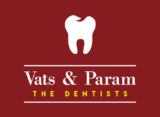Gum Treatment / Periodontal Care
Periodontal care or gum treatment, is the practice of preventing, diagnosing, and treating conditions that affect the gums and surrounding tissues. Gum disease can cause tooth loss and other health complications, which is why regular dental checkups are essential. A periodontal exam will determine the health of your gums and whether treatment is required. Depending on the severity of the condition, treatment may include scaling and root planing, laser therapy, or even surgery. Regular brushing, flossing, and dental cleanings can prevent gum disease, and early detection is crucial for effective treatment.

Here are some possible indications or symptoms that may prompt individuals to seek gum treatment or periodontal care:
- Red, swollen, or tender gums
- Bleeding gums, especially during brushing or flossing
- Receding gums or longer-appearing teeth
- Persistent bad breath or a bad taste in the mouth
- Loose or shifting teeth
- Changes in the way your teeth fit together when you bite down
- Pus between your gums and teeth
If you are experiencing any of these symptoms, it is important to see a dentist or periodontist for an evaluation and treatment plan.
If there's anything you'd like to know more about, just let us know - we're always happy to provide additional information
Fill the details will get back to you shortly...

Gum disease, or periodontal disease, is an infection of the gums and other tissues that support the teeth. Treatment may involve scaling and root planing, antibiotics, or in some cases, surgery.
It is recommended to visit the dentist every six months for a routine cleaning and checkup. However, if you have been diagnosed with gum disease or other periodontal conditions, the dentist may recommend more frequent visits.
Yes, maintaining good oral hygiene practices such as brushing and flossing regularly, avoiding tobacco products, and maintaining a healthy diet can all help prevent gum disease.
Symptoms of gum disease include bleeding gums, swollen or tender gums, bad breath, receding gums, and loose teeth.
While gum disease cannot be cured, it can be managed with proper treatment and regular dental care.
If gum disease is left untreated, it can lead to tooth loss and other serious health problems, including heart disease and stroke.
The level of discomfort during periodontal treatment can vary depending on the severity of your condition and the type of treatment required. However, the dentist can provide local anesthesia or other pain management options to ensure your comfort during the procedure.
Some patients may experience temporary sensitivity or discomfort following periodontal treatment, but these side effects typically resolve within a few days. the dentist can provide you with detailed post-treatment care instructions to help minimize any discomfort.
Post-treatment care for gum treatment or periodontal care is crucial to promote healing and prevent future issues. Here are some general tips:
- Follow the dentist's instructions: The dentist will provide specific post-treatment care instructions based on your individual needs. Be sure to follow these instructions carefully.
- Practice good oral hygiene: Brush and floss your teeth regularly to keep your gums healthy. The dentist may recommend using a special mouthwash or toothpaste to help with healing.
- Avoid smoking and tobacco use: Smoking can delay healing and increase the risk of complications. It's best to quit smoking or using tobacco products altogether.
- Stick to a soft-food diet: Eat soft foods that are easy to chew and won't irritate your gums. Avoid hard, crunchy, or sticky foods that can cause discomfort or damage to the treated area.
- Attend follow-up appointments: The dentist may schedule follow-up appointments to monitor your progress and adjust your treatment plan as needed. It's important to attend these appointments and inform the dentist of any concerns or issues you may have.

Working Hours
Monday - Saturday : 10:30 AM - 7:00 PM
Thursday: Holiday
Sunday: 10:30 AM - 1:00 PM
Call Us
+91 91081 24151
+91 99001 14151
Mail Us
happytohelp@vatsandparam.com